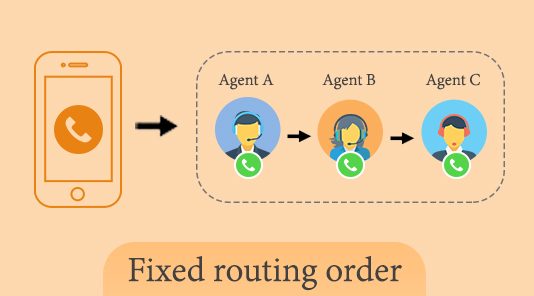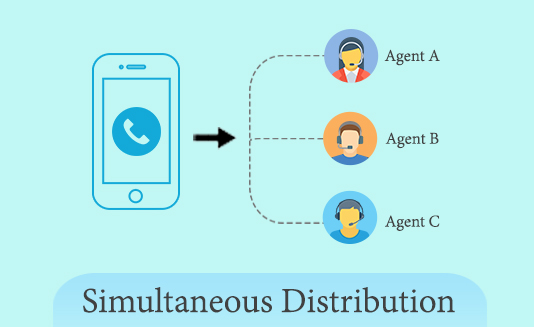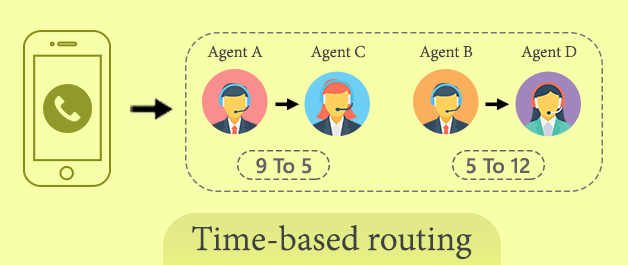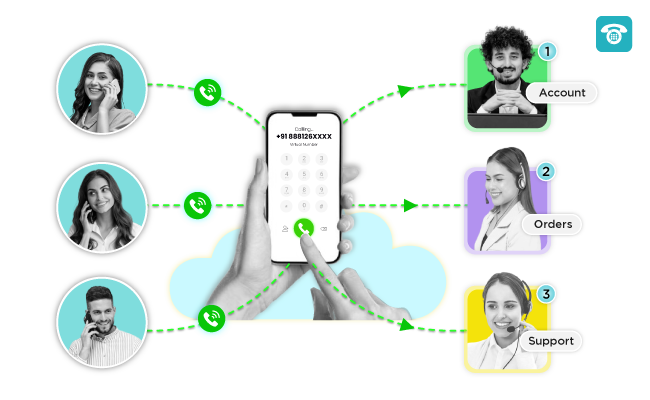For any smart and growth-focused business today, customer calls are a major source of their revenue. I am certain you do acknowledge the fact that leaving your customer calls unattended is leaving a lot of money on the table. Considering the need for lesser manual work and more automation in companies, technology gifted us with modern and strong tools to bring convenience to many of our business operations. The call handling process is one of those important business processes that should be streamlined to ensure maximum efficiency and top-notch calling experience to the customers. To help with exactly this, allow me to introduce you to Automatic Call Distribution software aka ACD.
It is a system that receives your incoming calls, assorts them based on preset conditions and transfers the call to the right agent, team, or IVR menu.
An ACD basically functions with Computer Telephony Integration (CTI) systems and Interactive Voice Response (IVR) to smartly route incoming calls to the most relevant agent. It is the major system of a cloud call center solutions and it significantly streamlines the entire call handling process.
We’ll be using ACD as the initialism for Automatic Call Distribution software in the article.
What is the function of an automated call distribution?
To state in very simple terms, Automatic Call Distribution attends and routes your incoming calls to the mapped phone numbers/ toll free number at the backend of your displayed virtual IVR number. This routing of your incoming calls is done automatically without any manual involvement.
However, this call routing is done in the pre-defined order that you’ll select based on your team working and suitability. The best part about ACD is that it enables your team to attend multiple calls parallelly. Basically, 3-4 incoming calls on the same displayed number can be attended by your team at the same time, with absolutely no disturbance or effect to your customer’s calling experience.
What is measured by automated call distribution systems?
One brilliant feature of automated call distribution systems is their extensive call reporting feature. The generated call reports help you measure different and vital criteria of your on-call customer communication:
1. The number of missed calls by each agent.
2. Confirmation of timely follow-up on missed calls.
3. On-hold waiting time for your callers.
4. Response time by your agents in attending the call.
5. Duration of the customer conversation with your team.
6. Peak calling hours and regions of maximum customer calls.
7. Supervise the way your agents are communicating with your customers.
What is the difference between IVR and ACD?
Essentially the primary feature of IVR (Interactive Voice Response) and ACD (Automatic Call Distribution software) is that it routes the calls to further mapped phone numbers.
However, both these systems are distinct in certain criteria. Here is a brief table to help you understand the difference between IVR and ACD.
| Criteria | IVR (Interactive Voice Response) | ACD (Automatic Call Distribution) |
| Definition | A keypress triggered response system that forwards calls based on the caller’s input in the keypad menu. | A programmed call routing system which forwards calls as per the defined method. |
| Voice message | Yes | No |
| Call Routing | Yes | Yes |
| Outbound Calls | Yes. Outbound dialer and IVR blasts are a few examples. | No. It works only with incoming calls. |
| Voicemail facility | Yes | Yes |
| Hardware setup | No. it is based on cloud telephony | Could be cloud-based or on-premise. |
How do automated phone systems work?
Automated phone systems perform their major function of routing calls in a pre-defined process that you choose as per your business suitability. Some of the major call routing service options with Automated Phone Systems work:
1. Fixed routing order:
While using ACD in a fixed order, incoming calls will go to your agents in a preset order. Each call will ring for a certain amount of time and then will ring to the next agents in the list until someone answers it.
Simply said: Agent B will only receive the call if Agent A is busy and isn’t answering the call.
This method of routing is used to prioritize particular agents over others. You can define the list of users to receive calls based on your preference, as to whom you think should be given more weightage to receive customer calls.

2. Simultaneous Distribution:
With a simultaneous distribution method of call routing, incoming calls will ring for every available agent at the same time whose number is mapped behind the displayed IVR solution. With this call routing technique, the chances of answering your customer calls are significantly faster than the fixed routing order.
Simply said: Agent A, B, C all will have the phone ringing at the same time and any of them can attend it as per their availability.

3. Time-based routing:
At times, most of the agents could be unavailable to take the call at a particular time of the day. Say, some of your agents could be more suited to take calls after 7 pm while some could easily take calls before that, Herein, with this method of call routing, you can specify the call routing to your agents at that particular time only.
Simply said: Agent A and C will get calls only between 9 am – 5 pm. And, Agent B and D will get calls between 5 pm – 12 am.
This feature offers two major benefits:
1. It allows your agents to define when they’re available to take calls, and you can manually mark their time availability with just a click on the panel.
2. If you have customers located in different countries you can assign agents who can take calls as per different time zones to cater to your international customers.

Why do companies use automated cloud phone systems?
Companies use automated phone systems because of the ease, automation, and convenience this brings to the business call management system process. Companies tend to receive a high volume of calls with a limited number of business agents hired to attend the calls.
In the absence of an efficient process to handle these calls, neither the agents would be able to perform effectively nor you as a company would be able to deliver professional and upgraded customer service.
Talking about using Automated Phone Systems in companies, here’s enlisting the major benefits that this system offers:
1. To turn a flood on incoming customer calls into an organized queue and implement a smooth process of call handling.
2. To ensure faster response time to their customer calls.
3. To eliminate manual involvement in the business call handling process.
4. To reduce the on-hold waiting time of callers as their call gets transferred from one agent to another.
5. To bring professionalism to the customer call handling process.
6. To facilitate employee training and management support considering the call recording service and monitoring feature of ACD.
7. To reduce the chances of missing important customer calls.
Key Takeaway:
Automatic Call Distribution software is undoubtedly one of the most beneficial resources for any company, be it large or small. If your business interacts with your customers over the phone and considers a good calling experience as your priority, then ACD is exactly what you need. The end results would be nothing else but an improved brand image of your organization, reduced call waiting time, and maximized on-call customer resolution rates.
An ACD is actually perfect for businesses handling large call volumes and has geographically dispersed teams to attend to its customer calls. So if you’re one of them, sign up now for a quick demo.



